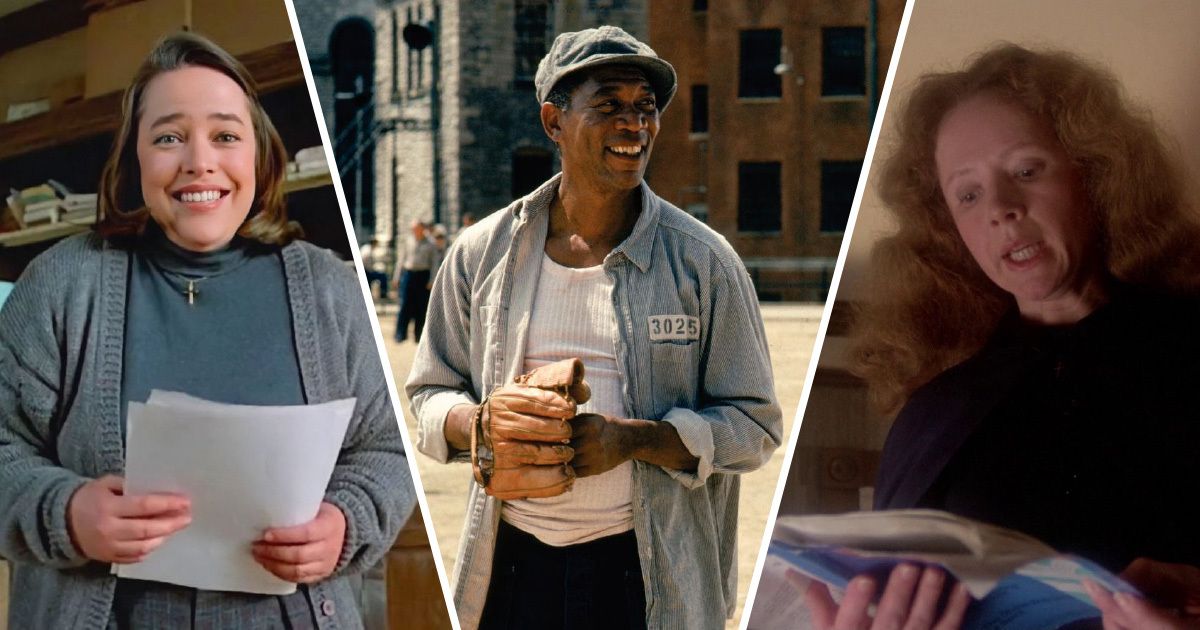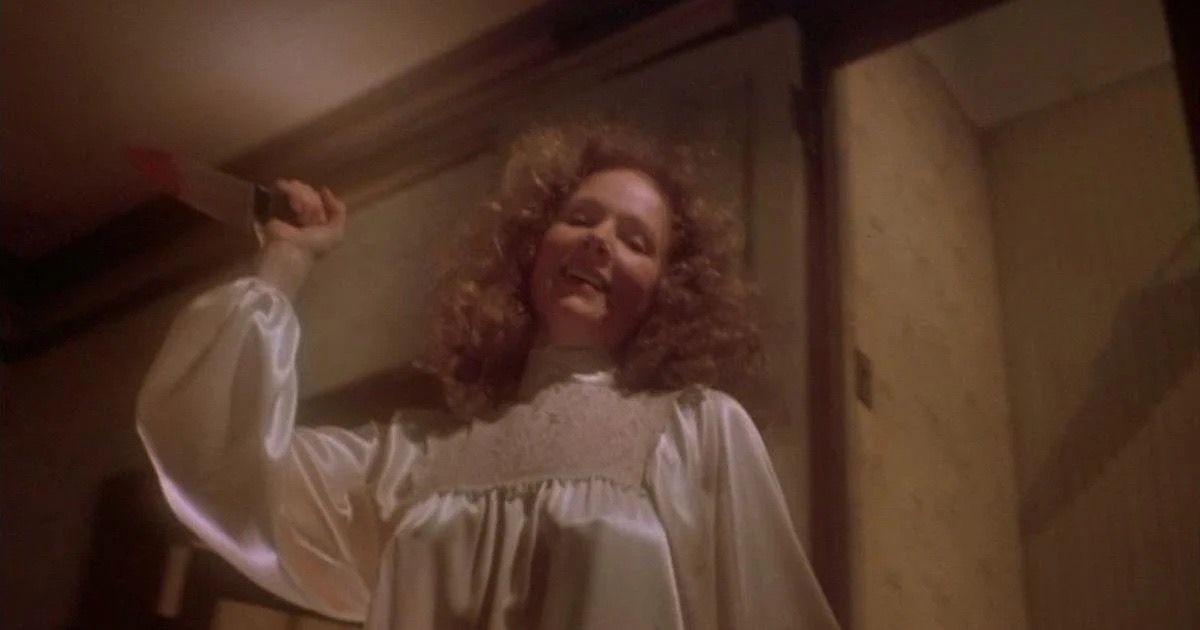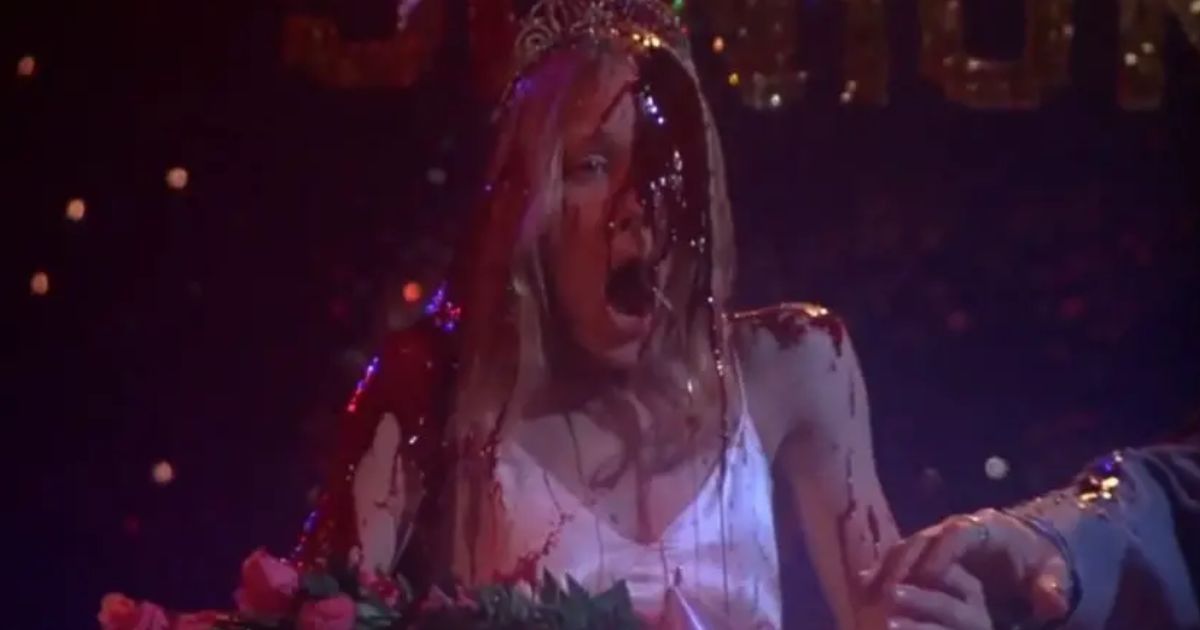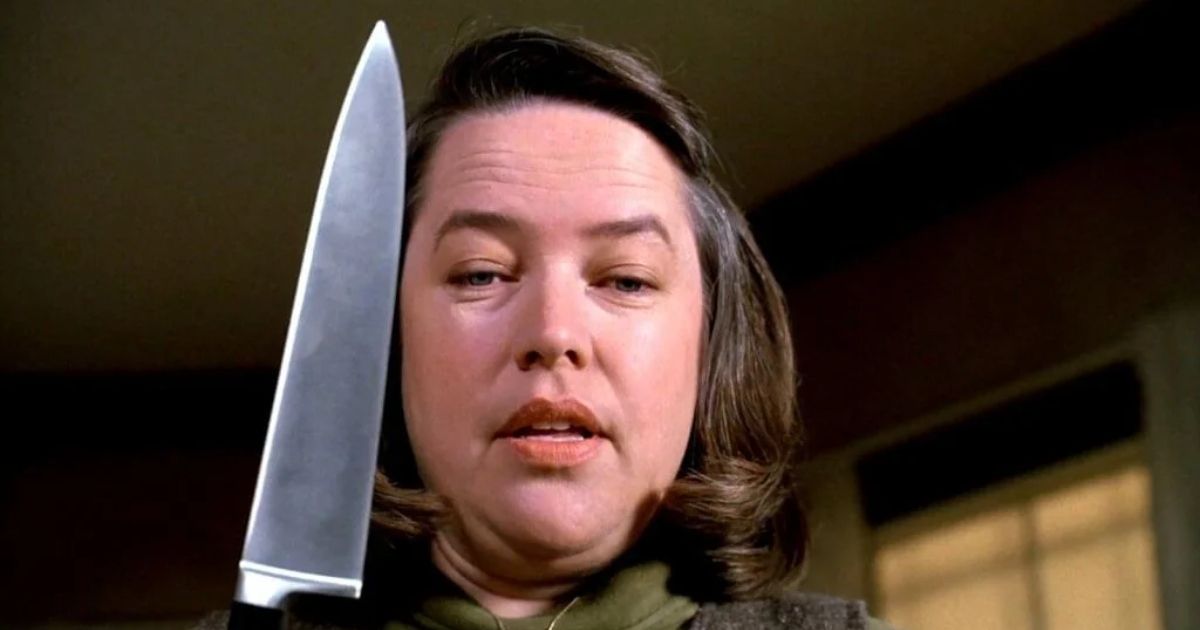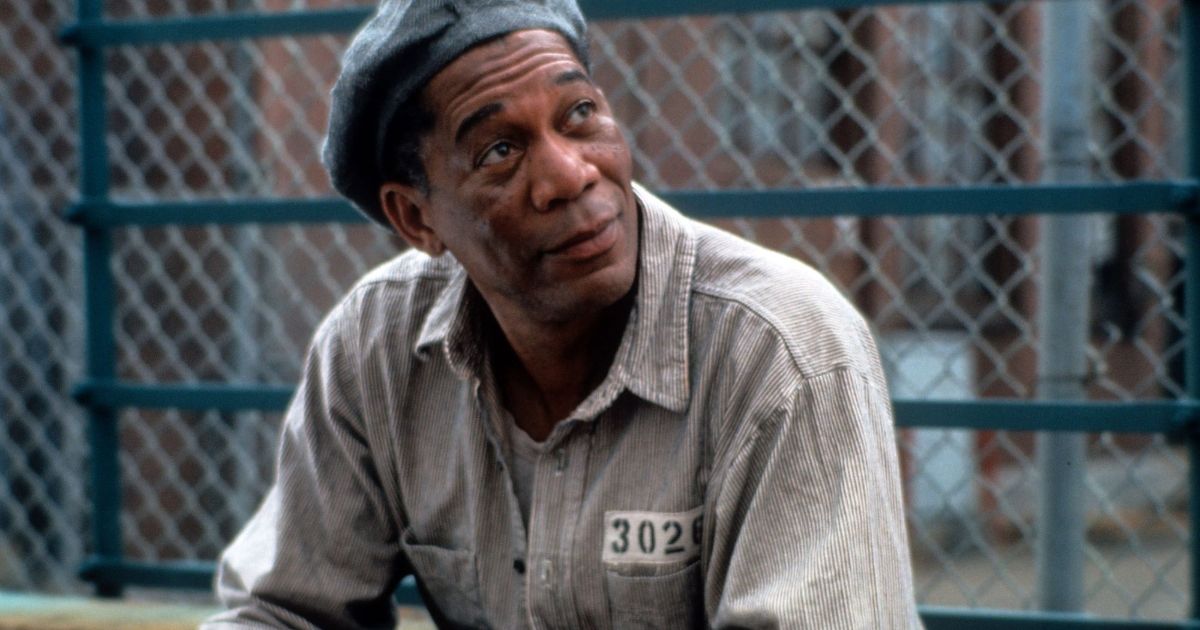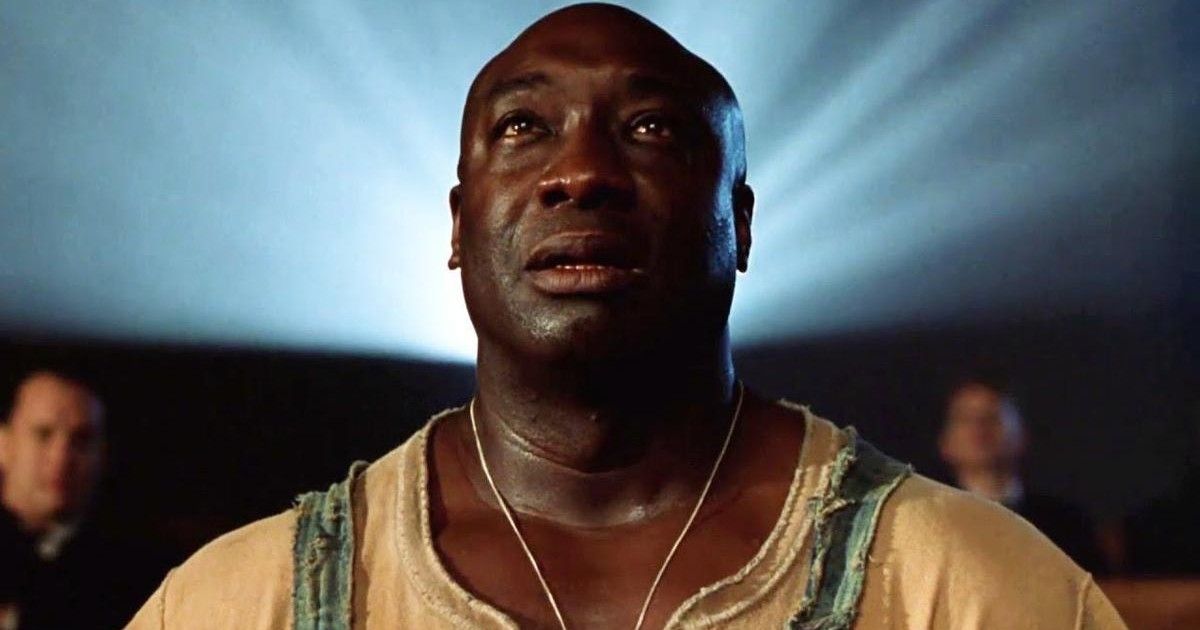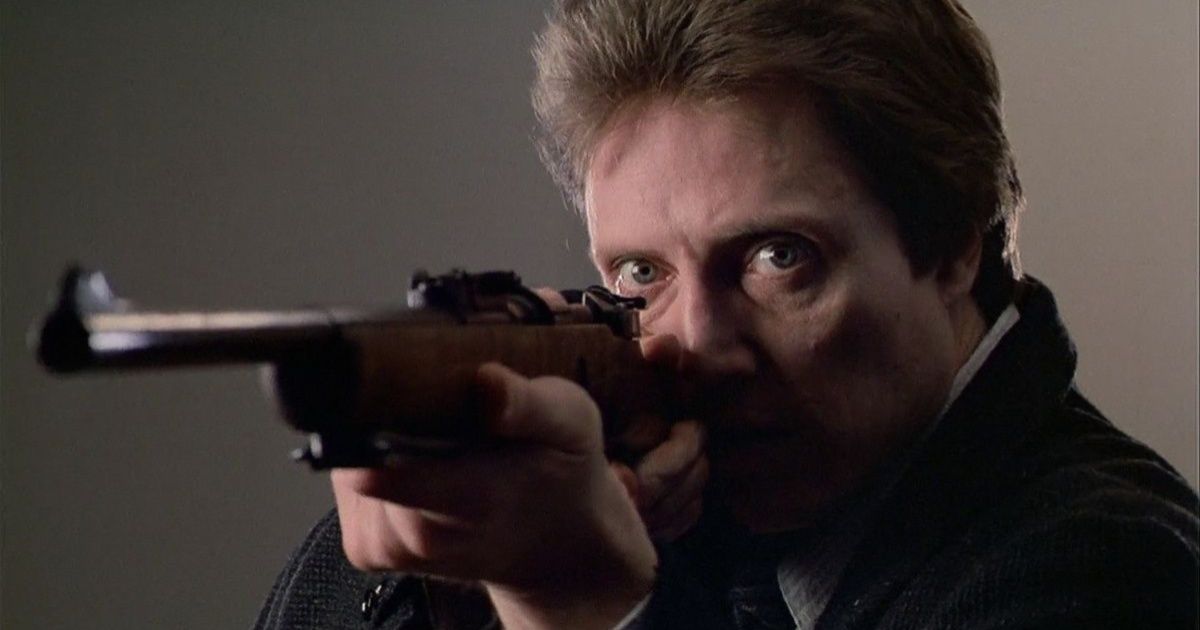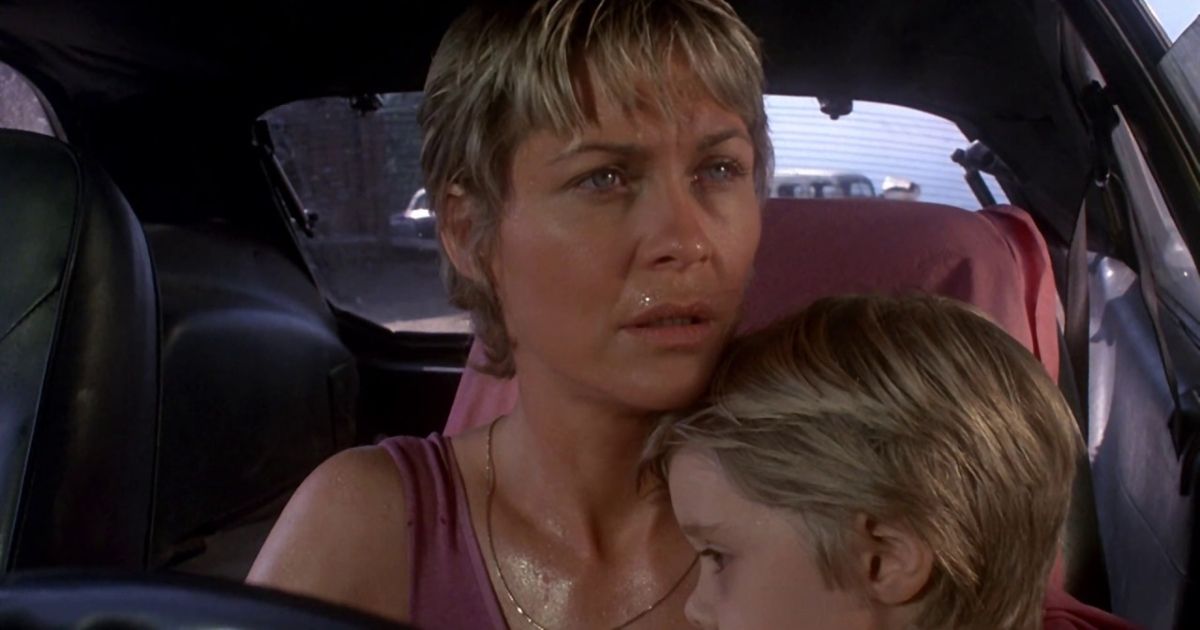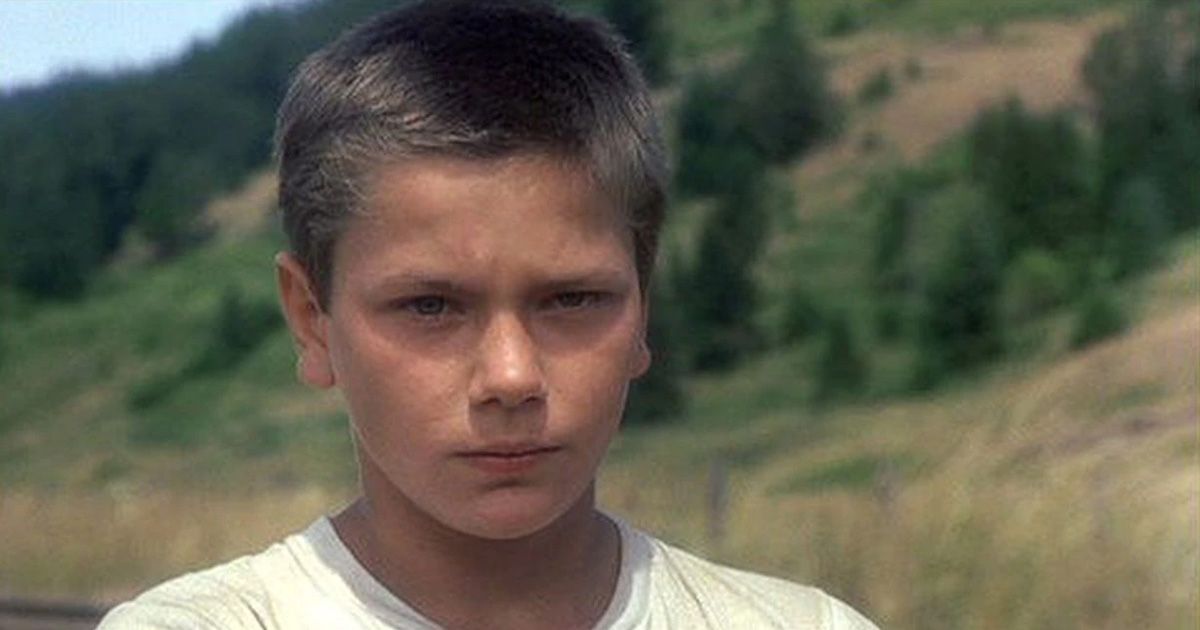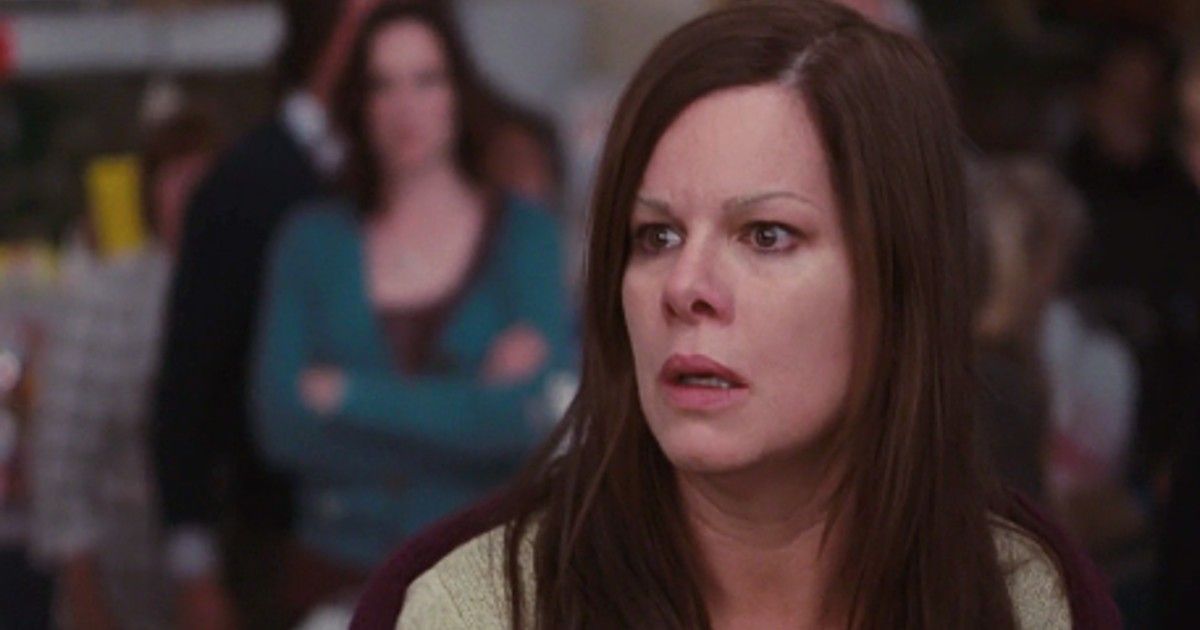Stephen King may be known as "The King of Horror," but it's hard to pigeonhole the renowned writer into a single genre, as he's also penned prolific stories in the veins of science fiction, crime, suspense, and coming-of-age drama. What can be definitively said about King is that his novels, novellas, and short stories were tailor-made to be adapted into major films. Today, there are around 60 films based on Stephen King's works, with that number continuing to grow in recent years.
While most of these adaptations tend to fall into the cult-classic realm, there are many that have achieved mainstream success, though only five have received Academy Award nominations: Carrie, Stand by Me, Misery, The Shawshank Redemption, and The Green Mile. The films garnered a total of 15 nominations, with five of those being in the acting categories. These nominations were clearly well-deserved and helped to elevate their respective films into mainstream status.
Still, we'd be remiss if we also didn't mention the King-inspired movie roles that were incredibly performed, but went unnoticed come Oscars night. Here are five actors who were nominated for Oscars for their roles in Stephen King adaptations, and five more who should have been nominated.
Piper Laurie - Carrie (1977)
Carrie is widely considered to be not only one of the best adaptations of Stephen King's work, but also one of the best horror movies ever made. Aside from Brian De Palma's masterful direction, the Oscar-nominated performances from Piper Laurie and Sissy Spacek were absolutely crucial to Carrie's critical and commercial success.
In the 1976 film (based on the 1974 King novel), Laurie plays Margaret White, Carrie's abusive mother, who becomes convinced that her daughter is a witch after she witnesses Carrie use telekinesis. Laurie maintains a creepy and deranged demeanor throughout the film, which no doubt earned her the Academy Award nomination for Best Actress in a Supporting Role, coming 15 years after her Oscar nomination for The Hustler. In 1987, Laurie would earn her third, and final, Oscar nomination for her supporting role in Children of a Lesser God.
Sissy Spacek - Carrie (1977)
Sissy Spacek pulled off an incredibly nuanced performance as the titular Carrie, slowly building from a sheltered and insecure bully victim to a revenge-seeking, fire-starting prom queen. The then 27-year-old Spacek channeled several method acting techniques to portray the 16-year-old Carrie White, including isolating herself from the cast and decorating her MGM trailer with religious images to better get into the headspace of a repressed and religiously traumatized teenager.
Spacek's commitment to nailing her roles served her well over the years, and four years after her Academy Award nomination for Carrie, she won the Oscar for Best Actress in a Leading Role for her portrayal of country music star Loretta Lynn in Coal Miner's Daughter. Spacek went on to secure four additional Oscar nominations during her career, all of them for Best Actress in a Leading Role (Missing, The River, Crimes of the Heart, and In the Bedroom).
Kathy Bates - Misery (1990)
Horror movie roles typically don't earn Academy Awards, but Kathy Bates bucked that trend when she won the Oscar for Best Actress in a Leading Role for her turn as the psychotic, author-kidnapping Annie Wilkes in Misery. Bates' big win also solidified Misery as the only Stephen King film adaptation to win an Oscar.
Most movie-goers may distill Bates's performance to the scene where Wilkes smashes novelist Paul Sheldon's (James Caan) ankles with a sledgehammer -- a scene that was apparently very emotionally difficult for Bates to shoot. But, King was apparently so impressed with some of the subtler aspects of Bates's acting that he pegged her for the titular role in the 1995 film Dolores Claiborne, an adaptation of King's 1992 novel that focuses on the strained relationship between a mother and daughter.
Morgan Freeman - The Shawshank Redemption (1994)
The Shawshank Redemption is not only considered to be one of the greatest Stephen King film adaptations, but also one of the greatest modern movies in history. It earned seven Oscar nominations, with one of those going to Morgan Freeman for his portrayal of Ellis "Red" Redding, a contraband smuggler who befriends Tim Robbins' Andy Dufresne during their stint in the formidable Shawshank State Prison.
Interestingly enough, The Shawshank Redemption, based on the 1982 King novella Rita Hayworth and Shawshank Redemption, marked the first time that Freeman provided narration for a film. Of course, today, the 86-year-old Hollywood legend is considered to be the most prolific voiceover artist of the 21st century. While Freeman would lose the 1995 Oscar for Best Actor in a Leading Role to Tom Hanks for his performance in Forrest Gump, he would finally get his long-deserved golden statue 10 years later for his supporting role in Million Dollar Baby.
Michael Clarke Duncan - The Green Mile (2000)
Michael Clarke Duncan had limited feature-film experience before he took on his career-defining role in The Green Mile, which was based on Stephen King's 1996 novel. Today, it's hard to imagine anyone else playing John Coffey, the mild-mannered, wrongly-accused Death Row inmate with the special healing power. But, he wasn't exactly director Frank Darabont's first choice.
Thanks to a phone call from Bruce Willis (yes, as in the same Bruce Willis from Die Hard and Pulp Fiction), Darabont, who also directed The Shawshank Redemption and later The Mist, cast Duncan in the major role. Willis had just worked with Duncan on the 1998 science-fiction disaster film Armageddon, and was convinced that his co-star was meant to play Coffey. Darabont took the chance, and Duncan did the rest, turning in a heartfelt performance that earned him the nomination for Best Actor in a Supporting Role.
Jack Nicholson - The Shining (1980)
Stanley Kubrick's The Shining is considered to be one of the most controversial Stephen King adaptations, as it departs heavily from the source material. King himself was critical of the film, particularly regarding the personality and motivations of the main character, Jack Torrance. In the 1977 novel, Torrance maintains some humanity before his eventual descent into madness, while in the film, Torrance's lingering elements of madness are already fairly apparent from the first scene.
While maybe not the Jack Torrance that King envisioned, Jack Nicholson still puts on an incredible performance in the leading role, embodying a frenetic insidiousness that he never really tapped into again for future roles. The Shining is regarded as a classic today, but at the time, it was largely panned by critics. It even received two Razzie Awards, one for Worst Actress (Shelley Duvall) and the other for Worst Director (Kubrick). Nicholson's performance, on the other hand, received mixed reviews, but with the benefit of hindsight, there's a strong argument to be made that Nicholson deserved an Oscar nom for his villainous turn.
Christopher Walken - The Dead Zone (1983)
Four years after his breakout performance in The Deer Hunter, for which he won the Academy Award for Best Actor in a Supporting Role, Christopher Walken teamed up with director David Cronenberg for the 1983 science-fiction thriller The Dead Zone. Based on King's 1979 novel, the movie follows schoolteacher Johnny Smith (Walken), who wakes after five years in a car-accident-induced coma and discovers that he has psychic powers.
Walken's understated facial acting conveys intense emotional depth and brings a necessary element of humanity to the eerie adaptation. It's among one of Walken's best performances, and while it should have earned him an Academy Award nomination, The Dead Zone, received zero love during awards season despite receiving extremely positive reviews from critics.
Dee Wallace - Cujo (1983)
Based on Stephen King's 1981 novel about a mother and son who are forced to defend themselves from a rabid St. Bernard, Cujo received mixed reviews from critics, though Stephen King openly praised it as one of the best film adaptations of his work. He particularly lauded the performance of Dee Wallace, who plays protective protagonist Donna Trenton. In a 2022 episode of The Kingcast, King argued that Wallace should've earned an Oscar nomination for her work in the film.
"One of the other ones that's really great…was Cujo. I thought, again, this is the sort of conversation that you get into with people about awards season, and who gets nominated and who doesn't get nominated. Dee Wallace should have been nominated for an Academy Award, and in my opinion, she should have won it. She was just passed over."
Wallace, who boasts over 250 film and TV credits, carved out her niche in horror and science fiction movies, starring in such films as The Howling, Critters, and E.T. the Extra-Terrestrial.
River Phoenix - Stand by Me (1986)
When he was just 18 years old, River Phoenix became the sixth-youngest actor to earn an Oscar nomination for Best Supporting Actor for his role in the 1988 film Running on Empty. But, just two years earlier, Phoenix showed acting maturity beyond his years in the coming-of-age drama Stand by Me.
Based on King's 1982 novella The Body, the Rob Reiner-directed film featured solid performances from its young actors, with Wil Wheaton, Corey Feldman, and Jerry O'Connell all receiving critical praise along with Phoenix. Still, Phoenix stands out from the rest of his co-stars for his portrayal of Chris Chambers, the chain-smoking teenager who is harshly judged by the community for his family background. While Stand by Me earned an Academy Award nomination for Best Adapted Screenplay, Phoenix, who sadly passed away from an accidental overdose in 1993 at the age of 23, deserved prime-time praise for his emotionally-acted supporting role.
Marcia Gay Harden - The Mist (2007)
The Mist, based on the 1980 novella of the same name, may be a monster movie, but like most of King's works, at its core, it's really about ordinary people and what they do when thrust into an otherworldly situation. The creatures laying siege on the Bridgton, Maine supermarket are fantastical figments of King's imagination, but Marcia Gay Harden's Mrs Carmody could be your next-door neighbor. That's what makes Harden's villainous portrayal of the religious fanatic one of the film's bright spots, as she injects real, humanized terror into the Lovecraftian, CGI-heavy proceedings.
Harden, who won an Academy Award for Best Supporting Actress for her role in the 2000 film Pollock, received a Saturn Award and a Fright Meter Award for her acting in The Mist. Still, the role transcends genre, and if she had played Mrs. Carmody in a drama film as opposed to a sci-fi flick, she likely would have landed an Oscar nomination.

